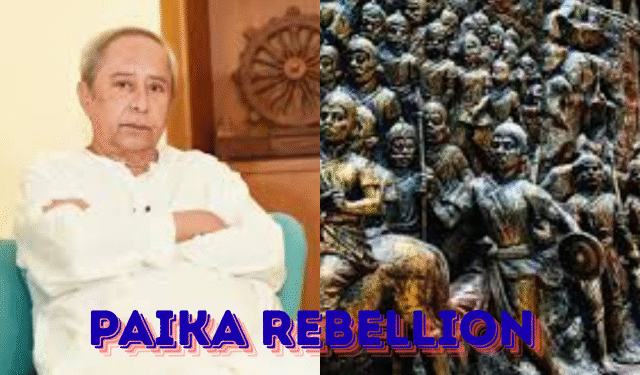A wave of discontent is sweeping across Odisha following reports that the National Council of Educational Research and Training (NCERT) has dropped the Paika Rebellion (Paika Bidroha) from its textbooks.
Former Chief Minister and current Leader of Opposition Naveen Patnaik expressed strong criticism, calling the decision a “huge dishonour” to the state’s historical legacy.
In a social media post, Patnaik wrote, “Deeply concerned to know that the NCERT has dropped #Odisha’s Paika Rebellion from its textbooks. The Paika rebellion was a watershed moment in Odisha’s history as our brave Paikas fought with extraordinary courage against oppressive British rule way back in 1817.”
Deeply concerned to know that the National Council of Educational Research and Training (@ncert) has dropped #Odisha’s Paika Rebellion or Paika Bidroha from its text books. The Paika rebellion was a watershed moment in Odisha’s history as our brave Paikas fought with…
— Naveen Patnaik (@Naveen_Odisha) July 22, 2025
Highlighting the rebellion’s significance, he reiterated past appeals to the Centre to officially recognise it as India’s first war of independence, predating the 1857 Sepoy Mutiny by four decades. “The omission… 200 years after the rebellion… is a huge dishonour to our brave Paikas,” Patnaik added.
The statement has sparked political and cultural outrage, with citizens and historians questioning why such a foundational moment in Odisha’s resistance narrative was excluded from academic discourse.
Patnaik urged current Chief Minister Mohan Charan Majhi and Union Education Minister Dharmendra Pradhan to intervene and ensure justice is restored by re-including the Paika Rebellion in the NCERT curriculum.
The Paika Rebellion was led by Buxi Jagabandhu and involved a formidable uprising against British policies that disrupted traditional power structures and landholdings in Odisha. It remains a symbol of early resistance against colonial oppression.
As calls intensify to honour Odisha’s valiant past, the debate underscores the need for inclusive representation of regional histories in national education policies.





























